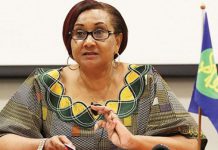THE topic of diaspora remittances has become “hot” as evidenced by the cover issue of The Economist magazine in November 2011 that screamed, “The Magic of Diasporas — how migrant business networks are changing the world”. In my previous two instalments looking at Foreign Direct Investment and Diaspora Remittances to Zimbabwe, I have made a case for the Government to maximise on policies that target the latter form of funds into the country as it is more sustainable and has little or no restrictions tied to it.
This article will look at case studies of countries and other measures that can be replicated in Zimbabwe for the country to maximise diaspora remittances not just as “school fees money, medical bills monies, money for groceries” but for these funds to be harnessed as they are put together for a bigger cause like sustainable economic development and not merely domestic consumption or personal housing projects funds.
Raising financial resources from the diaspora and using them to achieve targeted development objectives, however, would require more than simple projection of figures and a hope that nationalistic sentiments alone would entice diaspora resources.
The Ecuadorian Experience
The 1990s economic crisis in Ecuador, which peaked in 1999, and the subsequent dollarisation in early 2000, prompted an unprecedented wave of emigration by an increasingly impoverished middle class in search of greener pastures. The destinations of choice were Europe (mainly Spain and to a lesser extent, Italy) and USA. By 2007 an estimated 2.5million Ecuadorians were living abroad, a figure that represented approximately 20 percent of the population.
Remittances which had totalled US$200 million (1 percent of GDP) in 1993 hit US$3,1 billion by 2006 (7,8 percent of GDP).
According to Central Bank of Ecuador figures, remittances had become the second most important source of foreign exchange after petroleum exports. Ecuador achieved a current account surplus by 2006 because of remittances, despite the contraction in other traditional export contributions.
To encourage emigrants to use formal banking channels, mobilise capital for credit creation, and improve data collection on remittances and the country’s international credit ratings, the Government announced in March 2009, that it would “open a bank designed to collect and distribute remittances exclusively”. In addition, remittance services would be offered “free of charge” to recipients and credit histories would be maintained for any Ecuadorians living abroad which they could use should they ever return.
The government is also working on a “virtual consulate” project which provides Ecuadorian emigrants with secure access to a database where they can download legal documents (eg, title deeds, birth certificates) from authorised centres in various parts of the world. Modelled along the same lines as the Mexican “Matricula Consular”, the access card issued to each emigrant can also be used for both identification and debit/credit card purposes anywhere in the world.
Furthermore, in 2006 the government created an Office of Migration to oversee migration policy and promised to enhance the political representation of emigrants by setting aside three seats in Congress for this purpose. Legislation was passed in 2005 to allow emigrants to participate in Presidential elections, which they have done since the 2006 elections. This can easily be replicated by Zimbabwe as well and all that it must do is to give voting rights to its diaspora population and acknowledge them politically as well as its citizens and give them a source of belonging.






